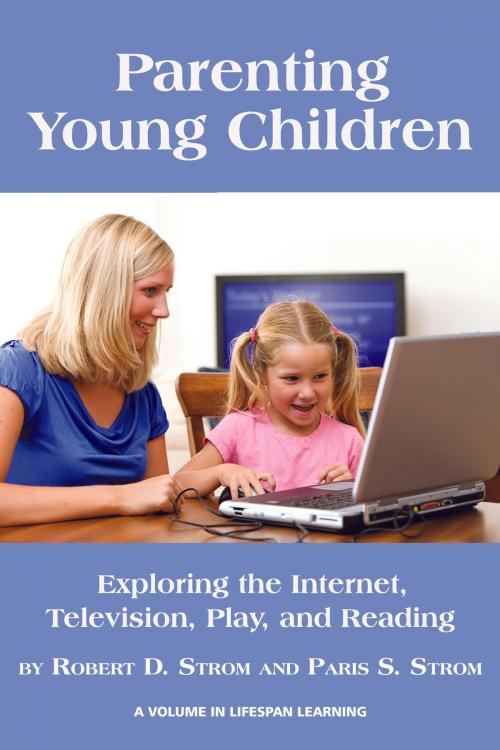Parenting Young Children
Exploring the Internet, Television, Play, and Reading
Nonfiction, Family & Relationships, Activities, Reference & Language, Education & Teaching, Higher Education| Author: | Paris S. Strom, Robert D. Strom | ISBN: | 9781607523284 |
| Publisher: | Information Age Publishing | Publication: | January 1, 2010 |
| Imprint: | Information Age Publishing | Language: | English |
| Author: | Paris S. Strom, Robert D. Strom |
| ISBN: | 9781607523284 |
| Publisher: | Information Age Publishing |
| Publication: | January 1, 2010 |
| Imprint: | Information Age Publishing |
| Language: | English |
Parents feel that a fastpaced lifestyle requires constant hurry to complete the next task and causes them to lose control over how time is spent. This environment makes it more difficult to build relationships with their children and teach them to honor priorities, care about others, maintain health, manage conflicts, and achieve balance. Our crosscultural studies of families have found that the most important gift parents can give their children is spending time together. Being together without multitasking or other interruptions increases sharing, in depth conversations, learning, and closeness. This book shows how to prepare children for school by providing the following experiences. • Parents have a new obligation, introducing their children to the Internet. Parent and child Internet visits are presented for each chapter with guidelines for teaching online. Information about child development stages are provided for parents on additional Web sites. You can link to these Web sites at Information Age Publishing (http://www.infoagepub.com/stromyoungchildren) • Parents and children spend more time watching television together than doing other things. Conversation questions are provided as a tool that parents can use to find out how children interpret events they see and detect learning needs. • Children will more likely become creative adults if they receive support for imagination and curiosity. Examples illustrate the merits of playing alone, playing with friends, and pretending with parents. • Boys and girls like bedtime stories and are motivated to read when they see parents read for pleasure. Children’s books that are recommended for discussion reinforce values parents hope to convey. • Parents are responsible for teaching foundation lessons about socialization. Methods are described to foster development of child selfcontrol, getting along with others, managing fears, and setting goals. • Parents benefit from feedback on how well their goals and practices reflect principles of child development. A parent selfevaluation form includes questions and answers to identify personal strengths and learning needs. This book is for parents, grandparents, and other educators of young children ages 3 to 8.
Parents feel that a fastpaced lifestyle requires constant hurry to complete the next task and causes them to lose control over how time is spent. This environment makes it more difficult to build relationships with their children and teach them to honor priorities, care about others, maintain health, manage conflicts, and achieve balance. Our crosscultural studies of families have found that the most important gift parents can give their children is spending time together. Being together without multitasking or other interruptions increases sharing, in depth conversations, learning, and closeness. This book shows how to prepare children for school by providing the following experiences. • Parents have a new obligation, introducing their children to the Internet. Parent and child Internet visits are presented for each chapter with guidelines for teaching online. Information about child development stages are provided for parents on additional Web sites. You can link to these Web sites at Information Age Publishing (http://www.infoagepub.com/stromyoungchildren) • Parents and children spend more time watching television together than doing other things. Conversation questions are provided as a tool that parents can use to find out how children interpret events they see and detect learning needs. • Children will more likely become creative adults if they receive support for imagination and curiosity. Examples illustrate the merits of playing alone, playing with friends, and pretending with parents. • Boys and girls like bedtime stories and are motivated to read when they see parents read for pleasure. Children’s books that are recommended for discussion reinforce values parents hope to convey. • Parents are responsible for teaching foundation lessons about socialization. Methods are described to foster development of child selfcontrol, getting along with others, managing fears, and setting goals. • Parents benefit from feedback on how well their goals and practices reflect principles of child development. A parent selfevaluation form includes questions and answers to identify personal strengths and learning needs. This book is for parents, grandparents, and other educators of young children ages 3 to 8.















